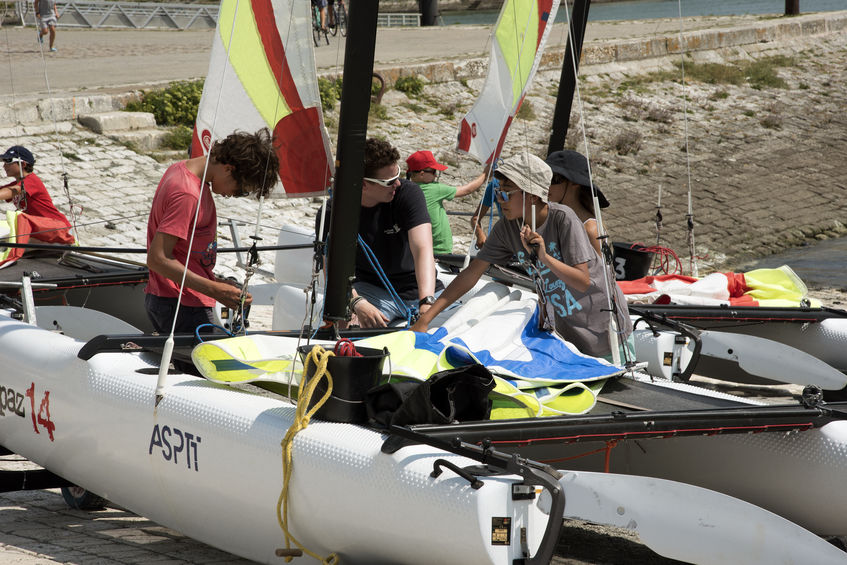10 Things Recreational Boaters Should Know
February 25, 2020 | Category: Boating Accidents | ShareThe Florida Fish and Wildlife Conservation Commission (FWC) says Florida leads the nation in the number of registered vessels with close to a million. The consequence of this volume makes Florida also lead the nation in the number of annual boating fatalities. Florida has a vast size of inland, coastal and offshore patrol areas combined with a significant population of avid and diverse boaters, which presents a unique and daunting challenge for FWC and local and federal maritime enforcement partners. FWC asks boat operators, passengers, and concerned individuals to make a difference and prevent recreational boating accidents.
Federal law requires the operator or owner of a recreational vessel to file a boating accident report with the State reporting authority if the recreational vessel is involved in an accident that results in any of the following:
· A person dies
· A person is injured and requires medical treatment beyond first aid
· A person disappears from the vessel under circumstances that indicate death or injury
· Damage to vessels and other property totals $2,000 (lower amounts in some states and territories)
· The boat is destroyed
 Boating safety courses are offered for all types and ages of recreational boaters. These courses are conducted by qualified volunteer organizations, such as the U.S. Coast Guard Auxiliary, U.S. Power Squadron, and other sponsors including state boating agencies.
Boating safety courses are offered for all types and ages of recreational boaters. These courses are conducted by qualified volunteer organizations, such as the U.S. Coast Guard Auxiliary, U.S. Power Squadron, and other sponsors including state boating agencies.
Both the U.S. Coast Guard Auxiliary and the United States Power Squadrons have certified vessel examiners who will perform a free Vessel Safety Check ("VSC") at your boat, at a time of mutual convenience. There are 10 things boaters should know about
4. Life Jackets
Most boating-related drownings happen on nice days. The U.S. Coast Guard says, “There’s no excuse not to wear a lifejacket on the water.”
5. Going Paddling
The American Canoe Association has education and tips on its website.
6. Float Plans
The U.S. Coast Guard says boaters should file a float plan before embarking on the water. Why? The answer is simple... there are just too many facts that need to be accurately remembered and ultimately conveyed in an emergency situation. Without a float plan, you are counting on someone else, a friend, neighbor, or family member to remember detailed information that rescue personnel needs in order to find you. Information can make a difference in the outcome.
Carbon monoxide (CO) can harm and even kill you inside or outside your boat. The U.S. Coast Guard urges boaters to educate themselves about the dangers of carbon monoxide.
8. Boating Under the Influence (BUI)
BUI is just as dangerous as driving under the influence (DUI). The leading contributing factor in fatal boating accidents is alcohol.
9. Shallow Water Boat Performance
Boats designed for shallow water fishing are most prone to shallow water accidents, according to the U.S. Coast Guard. These boaters need to know how to handle this situation before going out on the water.
10. Propeller Safety
Boat propellers are a hidden danger to boaters. To avoid boat propeller accidents remove keys from the ignition when stopping.
“Florida is a boating capital, and if boaters know the 10 things recommended by the FWC, they will have many years of fun on the water. Click on each of the headings for more information. Should you or a loved one be injured in a boating accident because of the negligence of another, please contact us. We are available 24/7 to assist you, and there are no costs or fees until we receive a monetary recovery for you,” said Fort Myers Boat Accident Attorney Randall Spivey of Spivey Law Firm, Personal Injury Attorneys, P.A.
Fort Myers Boat Accident Attorney Randall L. Spivey is a Board Certified Trial Attorney – the highest recognition for competence bestowed by the Florida Bar and a distinction earned by just one percent (1%) of Florida attorneys. He has handled over 2,000 personal injury and wrongful death cases throughout Florida. For a free and confidential consultation to discuss your legal rights, contact Spivey Law Firm, Personal Injury Attorneys, P.A., in Lee County at 239.337.7483 or toll-free at 1.888.477.4839, or by email to Randall@SpiveyLaw.com. Visit SpiveyLaw.com for more information. You can contact Spivey Law Firm, Personal Injury Attorneys, P.A.in Charlotte County at 941.764.7748 and in Collier County at 239.793.7748.

